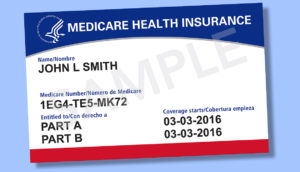 Today’s top story: Are high-deductible Medicare supplement insurance plans worth it? Also in the news: Are older workers a solution to the labor shortage, 2022 best cities for freelancers, and two of the biggest financial regrets women say they have.
Today’s top story: Are high-deductible Medicare supplement insurance plans worth it? Also in the news: Are older workers a solution to the labor shortage, 2022 best cities for freelancers, and two of the biggest financial regrets women say they have.
Are High-Deductible Medicare Supplement Insurance Plans Worth It?
Compare premiums to check whether high-deductible Medigap Plan G and Plan F could offer savings.
Are Older Workers a Solution to the Labor Shortage?
Older workers, a large segment of the U.S. labor force, can deliver valuable benefits to businesses of any size.
2022 Best Cities for Freelancers
The pandemic has created more opportunities for remote, self-directed and freelance work than ever.
Here are two of the biggest financial regrets women say they have — and what you can do to avoid them
Fidelity’s 2022 Money Moves survey polled women between the ages of 18 and 35.
 Today’s top story: Can you have too much credit? Also in the news: 5 things to know about gold’s record breaking run, the Equal Opportunity Act and its effect on women’s finances, and negotiating with your landlord during COVID-19.
Today’s top story: Can you have too much credit? Also in the news: 5 things to know about gold’s record breaking run, the Equal Opportunity Act and its effect on women’s finances, and negotiating with your landlord during COVID-19. Today’s top story: How to stock up wisely, emergency or not. Also in the news: Some rental owners could get an extra tax break this year, how to unlock the debtor’s prison of student loans, and the most important money move that women aren’t making.
Today’s top story: How to stock up wisely, emergency or not. Also in the news: Some rental owners could get an extra tax break this year, how to unlock the debtor’s prison of student loans, and the most important money move that women aren’t making. Today’s top story: What homeowners must remember at tax time this year. Also in the news: A GOP proposal to take student loan payments straight from your paycheck, why you might not have to pay that medical bill, and the biggest financial mistake women make.
Today’s top story: What homeowners must remember at tax time this year. Also in the news: A GOP proposal to take student loan payments straight from your paycheck, why you might not have to pay that medical bill, and the biggest financial mistake women make. Today’s top story: The biggest financial mistake women make. Also in the news: How to find the dirt on your tax preparer, nine states where you can file your taxes after April 15th, and experts reveal who is likely to get a lower refund this tax season.
Today’s top story: The biggest financial mistake women make. Also in the news: How to find the dirt on your tax preparer, nine states where you can file your taxes after April 15th, and experts reveal who is likely to get a lower refund this tax season.  Today’s top story: Hoping for a 529 tax deduction for K-12? Not so fast. Also in the news: 4 business credit card mistakes you can’t afford to make, the biggest financial mistakes women make, and one-size-fits-all financial advice.
Today’s top story: Hoping for a 529 tax deduction for K-12? Not so fast. Also in the news: 4 business credit card mistakes you can’t afford to make, the biggest financial mistakes women make, and one-size-fits-all financial advice. Today’s top story: The biggest financial mistake women make. Also in the news: 4 business credit card mistakes you can’t afford to make, 5 divorce mistakes that can cost you, and why you might owe taxes this year.
Today’s top story: The biggest financial mistake women make. Also in the news: 4 business credit card mistakes you can’t afford to make, 5 divorce mistakes that can cost you, and why you might owe taxes this year.